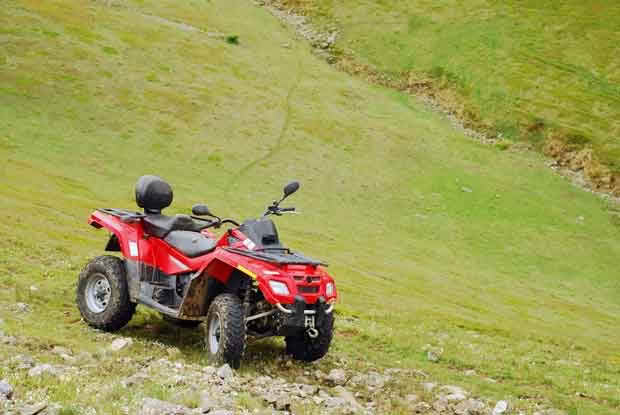How to ride an ATV on hilly ground

Riding an ATV is a learned skill and if you don’t do it properly you can easily be badly hurt or even killed by these deceptively heavy machines rolling over on top of you.
Words: ACC
As an ATV travels across, up or down a slope, weight transfer occurs from the uphill wheels (those higher up on the slope) to the downhill wheels (those lower down the slope).
The steeper the slope, the greater the weight transfer. At a certain gradient this weight transfer may be so great that the ATV will tip over down the slope. To prevent tipping, the weight transfer needs to be countered and this is where the rider’s body position can help. Move your bodyweight to the uphill side of the ATV to counteract the weight shift of the vehicle.
Avoid bumps and hollows; these may cause further ATV weight shift to the downhill side.
Always ride slowly and smoothly – don’t blip the accelerator.
RIDING STRAIGHT UP SLOPES
– Move your bodyweight forward to counteract the weight shift of the ATV
– Avoid bumps and hollows; these may cause further ATV weight shift to the downhill side.
– Select a low gear and use a steady throttle. Avoid ‘blipping’ the throttle, which may cause weight to be suddenly shifted from the front wheels to the rear, causing the ATV to flip over backwards.
RIDING STRAIGHT DOWN SLOPES
– Move your bodyweight backward to counteract the weight shift of the ATV
– Avoid bumps and hollows; these may cause further ATV weight shift to the downhill side.
– Select a low gear and travel slowly and steadily
– Avoid sudden application of the front brake as this may cause the ATV to flip over forward.
– The steeper the slope, the more your bodyweight needs to be moved to the uphill side of the ATV. To achieve this you may need to become an ‘active’ rider and stand up on the footplates.

